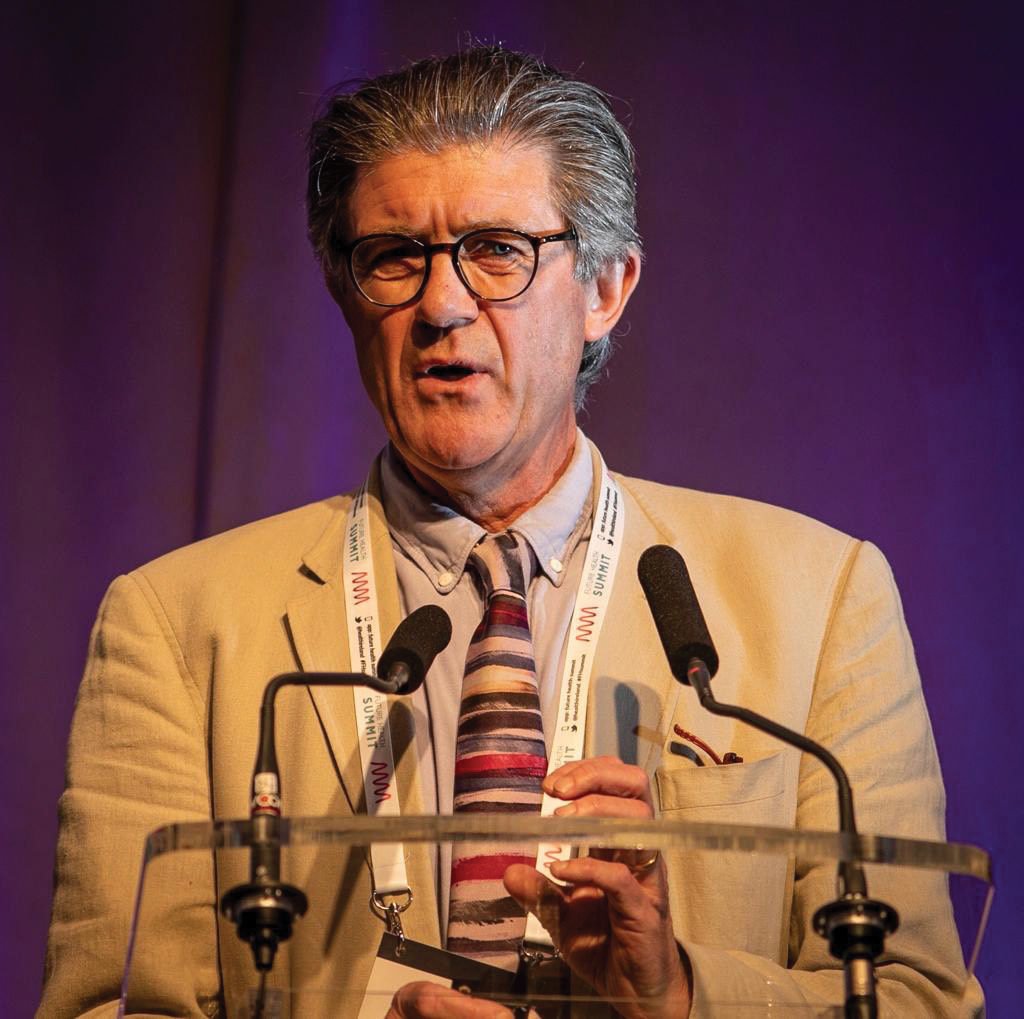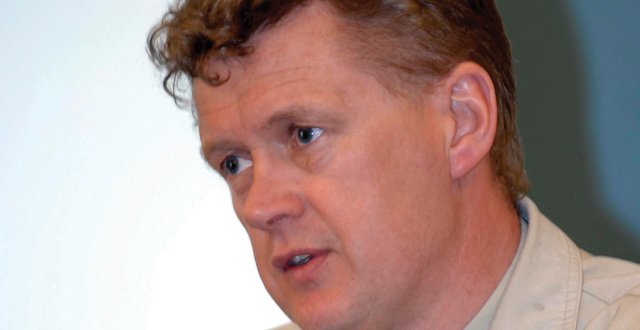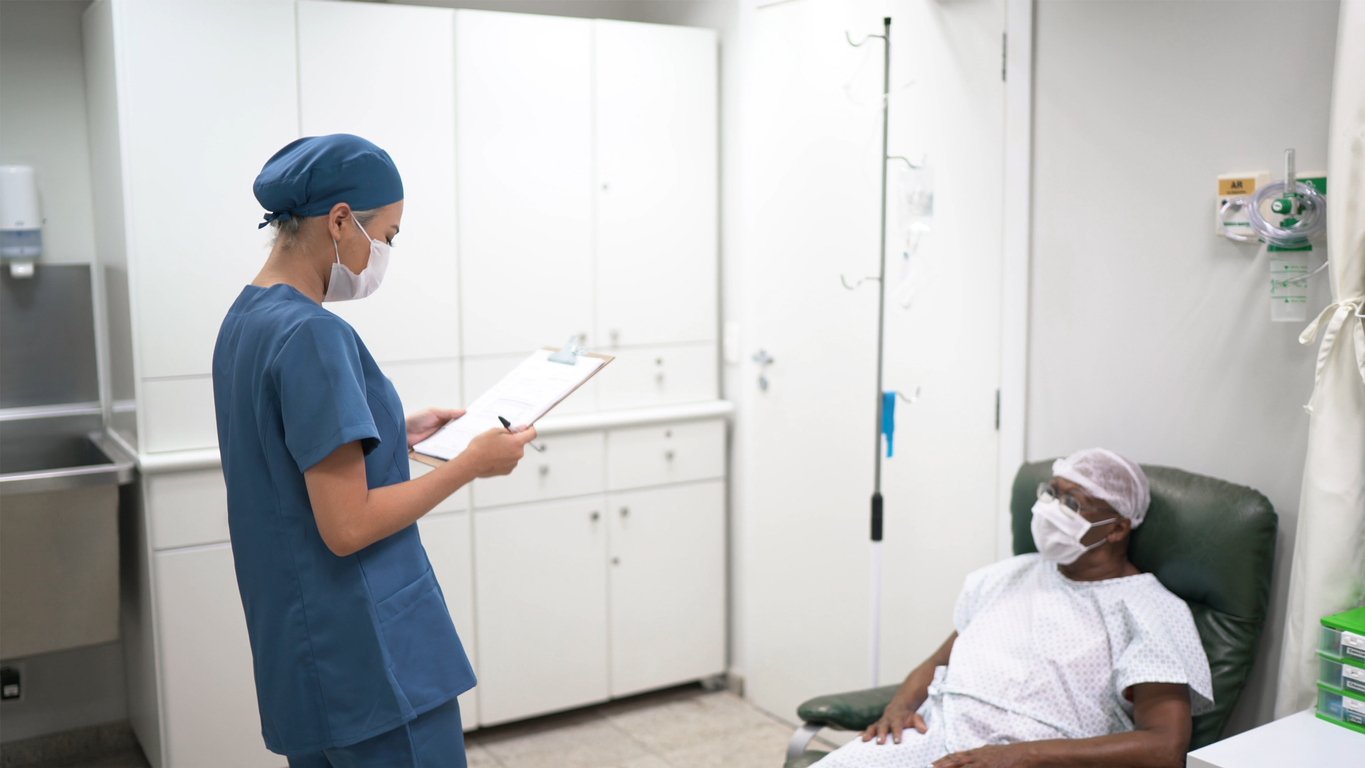A new survey finds that a negative perception of general practice among some doctors impacts medical students’ career choices. David Lynch looks at the data and talks to experts
General practice is only going to become more central and important to the Irish health service, according to Government policy. The Sláintecare Report, the Government’s 10-year plan for the reorientation of Irish health, has a strong emphasis on moving healthcare towards universal access and integrated primary and community care.
All experts agree that to fulfill this vision the country needs more GPs. However, as regularly reported in these pages, GPs face serious challenges including over-work, retirements, cut-backs and lack of locum support, especially in rural areas. Thus recruitment and retention is a problem.
A recent survey of final year medical students in Ireland has raised another factor as to why some students do not choose the path of general practice – the attitudes of other doctors.
Toxic
Does a negative attitude towards general practice from some working in other specialties really have an impact on medical students?
“Oh, yes there is very good research evidence to show this,” Prof Tom O’Dowd, Professor of General Practice at Trinity College Dublin, told the Medical Independent (MI) at the Future Health Summit in the RDS last month.
Prof O’Dowd recently tweeted about new research highlighting this phenomenon and his tweet garnered significant reaction online.
“There is my own personal experience of working in medical school for many years, is that it is often a toxic place for GPs,” he said.
“I mean one of my colleagues said to me recently that he ‘wouldn’t mind’ if his children ended up in general practice.
“Now that use of language [is problematic] … these are nice caring people, but they have to reappraise their attitudes because it is bad.
“We are all [across the health service] in it together. I really think stigmatising general practice is not good for the health service.”

The recent research that Prof O’Dowd referenced on Twitter was the paper The factors that influence medical students when deciding on a career in general practice: A survey of final year medical students in Ireland. The paper was delivered in March at the Joint Annual Scientific Meeting of the the Association of University Department of General Practice in Ireland (AUDGPI) and the ICGP.
The paper was co-authored by Drs Maitiú Ó Tuathail and Claire McNicholas, both GPs based in Dublin.
According to the paper (see sidebar), “a multitude of factors was found to influence student perception of general practice”.
“Contact with GPs was found to have the most influential impact positively shaping students’ aspiration to pursue a career within general practice.”
However, the survey also found that “the negative perception of general practice by doctors from other specialties and classmates were the most important attributes negatively influencing students’ perception of general practice”.
So, did this conclusion surprise the authors?
Prestige
“No, not at all,” Dr Ó Tuathail, the paper’s co-author and former President of the NAGP, told MI.
“Having gone through the system, that was not surprising to me at all.
“I suppose the survey shows that the attitude that other non-GPs or other hospital specialists have towards general practice is, number one, hugely influential and number two, it tends to be fairly negative.”
As to the reasons why there might be such attitudes towards general practice, Dr Ó Tuathail principally blames the structure of medical training rather than the attitude of individual doctors.
He argued that this structure helps heighten the sense that general practice is not as prestigious as hospital-based specialties.
“I did my training in Galway, and all the medical training is completely hospital-centric,” Dr Ó Tuathail said.
“So I got one month in general practice in six years. That was it. For instance, I spent three months in total doing anesthetics, which is a sub-specialty. So the amount of exposure we get to general practice is very small, that is problematic.”
Students
Current medical students were also not shocked with some of the survey’s findings.
“We are unsurprised by the findings of Drs Ó Tuathail and McNicholas’ paper,” NUI Galway medical student and Association of Medical Students of Ireland (AMSI) National Officer for Public Health Ms Rosie James told MI.
“Most medical students experience other doctors talking about so-called ‘GP land’. They hear general practice being dismissed as a softer option for weaker graduates.
“However, when these students get to experience general practice placements they see fantastic clinicians who really care about their patients, often working in hard-pressed conditions.”

Members of AMSI’s national board discussed this newspaper’s query and found that there are more differences in how students are taught general practice than is the case across other subjects.
“There is considerable variance in the amount of time spent on GP placement in Irish medical schools, for example University of Limerick (UL) students spend 16 weeks while National University Ireland Galway students only spend four,” Ms James added.
“Good quality GP placements, which give students time and space to learn are very worthwhile. Achieving access to these opportunities for all Irish medical students should be a priority for policy makers and universities.”
Denigration
Dr Ó Tuathail maintained that a greater focus on general practice in training would “lead to a change in mindset among academic doctors, because I think at the moment it is given such little time… General practice needs to be given equal academic time and that is not happening. But once that happens I think that attitudes [from other specialties] would change”.
The paper co-authored by Ó Tuathail concluded that “denigration of general practice is also routinely encountered by medical students on hospital rotations…The negative portrayal of general practice being less prestigious than hospital-based specialties has been shown to have a pivotal influence in facilitating medical students’ negative perception of general practice and deters them from pursuing general practice as a career.”
With the policy shift towards primary care at governmental level, why is this not reflected in the attitudes of some others in medicine?
“I think we are just trailing behind,” Dr Ó Tuathail explained.
“I suppose traditionally, I mean the way medicine was taught it was completely 100 per cent hospital-centric and I suppose general practice faculties are only 20 or so years old in universities, so I think there is just a huge lag. I think UL is the newest university in the country and I think it is streets ahead of other universities in terms of that.”
Dr Ó Tuathail added he believes there are some positive examples in some universities.
“If you look at the universities that are turning out a lot of GPs, like UL, now the reason that UL are turning out a lot of GPs is that it gets a huge amount of exposure to general practice.
“So I think one of the first and most important steps could be to give general practice an equal share of academic time. As I said when I was in college I got a month of general practice and that was it.
“It is crazy to think that in the six years it takes to become a doctor just one month of that was focused on general practice. I think you need to completely re-orientate the way students are taught.”
Competitive
MI contacted medical schools regarding these issues. Trinity College Dublin (TCD) was the only one which had replied by the time of going to press.
Prof Joe Barry, the Head of the Discipline of Public Health and Primary Care in TCD, agreed with Dr Ó Tuathail regarding the time spent on general practice in medical schools.
“That is true,” Prof Barry acknowledged.
“They spend their time in hospital a lot and I think that is something that needs to change more. Because people go with role models and they see people they want to aspire to. So that is a valid point.
“But I certainly don’t get the feeling that the students don’t want to be GPs, a lot do. But they are very much in hospitals [during training].”
However, he believes negative or condescending attitudes towards general practice from other specialties “is not as prevalent as it was” and that “it is very competitive to get into GP training”.

“We say to students ‘you are going to hear lots of negative comments about the health service, you have got to somehow get over that and not let that colour how you view the world’.
“But yes some students may get negative feelings, but our students who go to GPs have a great time and they really enjoy it very much.
“I think GPs are well regarded,” Prof Barry continued. “Certainty in terms of people going for training posts in general practice, people from the higher echelons of the class [go for general practice]. I think there is sort of a feeling among some of the doctors that there is going to be a shift in emphasis from hospital care to primary care and that will encourage them… so I think general practice is still a very attractive career option in the perception of doctors.
“Obviously there are specific challenges, especially in rural Ireland in terms of viability – there is no doubt about that.”
Potential
With the understandable focus on some of the challenges of general practice from the representative bodies, is this not also influencing medical students against general practice. Can anything be done about that?
“What I say is that general practice is a great job, but not necessarily in Ireland,” Dr O’Tuathail said.
“So I look at my friends who are in Canada and Australia, the difference is that, number one, they are very supported and, number two, they work to their full potential.
“So if you are a GP in Ireland you feel like you are not used. We are a vital resource that is completely under-utilised. The problem in Ireland is that as a GP you cannot work to your full potential.
“You can’t get access to any of the diagnostics that you need that would allow you to manage more patients in the community…The level of work satisfaction is also a lot higher in Canada and Australia because they can do a lot more.”
With such challenges, what advice would he give final year medical students making career choices?
“What I say to the medical student is that you need to think of general practice as a specialty,” Dr Ó Tuathail said.
“So people go on to become a cardiologist, they don’t say ‘I want to be a cardiologist in Ireland’, they say ‘I want to be a cardiologist and hopefully in Ireland’.
“So I’d say to a medical student is that the mindset is, you need to choose a specialty based on the job and not on the country.
“I am hoping that we get to the stage in this country where being a GP in Ireland is as good as being a GP in Australia, where you have access to diagnostics and support.But that is frankly just not true at the moment.
“Being a GP is really a great career, I really enjoy being a GP but there are problems – but other countries have got it right.
“You can be a GP in Canada and Australia and not have all the problems we have here. It is just a matter of hoping that the matters we have here are fixed.” He would advise medical students that “there is no point being put off general practice because of the problems we have now”.
“It can be remedied. I just don’t know if the will is there at a Government level to do it.”
The importance of role models
In terms of other chief lessons from the survey, Dr Ó Tuathail said the results highlight the “incredibly important” impact GPs can have in “encouraging and convincing medical students to become GPs”.
In the survey a huge majority (86 per cent) of medical student respondents reported their exposure to general practice during college to be an “overall positive experience”.
Echoing the comments from Prof Barry [see main piece], he said that the experience with GPs during training is vital.
“So medical students’ own [personal/family] GPs and the GPs they interact with… are hugely influential when it comes to the decision on whether they become a GP or not,” Dr Ó Tuathail said.
“For me that is a huge take home message, and that is something I tell all GPs. If you have a medical student with you it’s really important that you be positive. Because at the moment I think there is still a huge level of negativity around general practice. It’s a great job, but I think you know if you have medical students around you and you only talk about the negative that has a profound impact on them.”
Drs Ó Tuathail and McNicholas’ paper mentions that some medical students say that the policy implications of Sláintecare increase their positivity towards general practice.
“Of interest to note was that the Sláintecare initiative was found to be well received and have a generalised positive effect on medical student’s decision to pursue a career in general practice,” according to the report.
For Dr Ó Tuathail, the emphasis on general practice found in Sláintecare means that recruitment and retention of GPs is even more important.
“If you look at the feedback that medical students had filled in the survey where they could comment on what they wanted…[they said] the more time that they spent on general practice the more they liked it,” he said.
“And the more the medical students were able to be hands on and see patients the more they liked it.
“The idea of pushing Sláintecare is one thing. But really if we want to increase the number of GPs in training we have to convince the number of students to do general practice and where that starts is in the medical schools.
“…We really should be starting in the universities, reorienting the universities towards primary care and general practice so that once Sláintecare [is implemented] we have enough GPs to provide the service.
“Because at the moment everything is quote-unquote ‘going towards Sláintecare’, but there is a huge crisis in general practice coming.”
Testing the attitudes of final year students
Some 66 per cent of students reported that a negative perception of general practice was held by other specialties.
The negative perception was found to have the greatest influence (23 per cent) in deterring students from choosing general practice as a career with the lack of prestige influencing 18 per cent. For the majority of respondents, 43 per cent and 62 per cent found that the negative perception of general practice had no influence on their career decision.
The majority of medical students tended to be exposed to general practice for a period of four-to-six weeks with 33 per cent of respondents having between two and four weeks, 25 per cent having between four and six weeks and six-to-eight weeks exposure in total. Some 16 per cent of respondents had over eight week’s exposure to general practice. Of these, 86 per cent of respondents reported their exposure to general practice to be an overall positive experience and 88 per cent reported that this exposure was sufficient to provide an impression of general practice as a career.
The perception of general practice held by the public was found to be positive among 85 per cent of respondents. This was found to be the most positive influential factor among respondents, encouraging 23 per cent of students to choose general practice. The majority (61 per cent) stated that it did not influence their decision.
The majority of students highlighted that the work-life balance (85 per cent), short training scheme (58 per cent), broad scope of practice (62 per cent) and lack of fellowship or post-graduate qualifications as the most important factors positively influencing student’s decision to choose general practice as a career.
A limited access to diagnostics was the most frequently cited and important factor found to negatively influence 69 per cent of students’ career decisions.
All results from The factors that influence medical students when deciding on a career in general practice: A survey of final year medical students in Ireland – co-authored by GPs Dr Maitiú Ó Tuathail and Dr Claire McNicholas.













Leave a Reply
You must be logged in to post a comment.